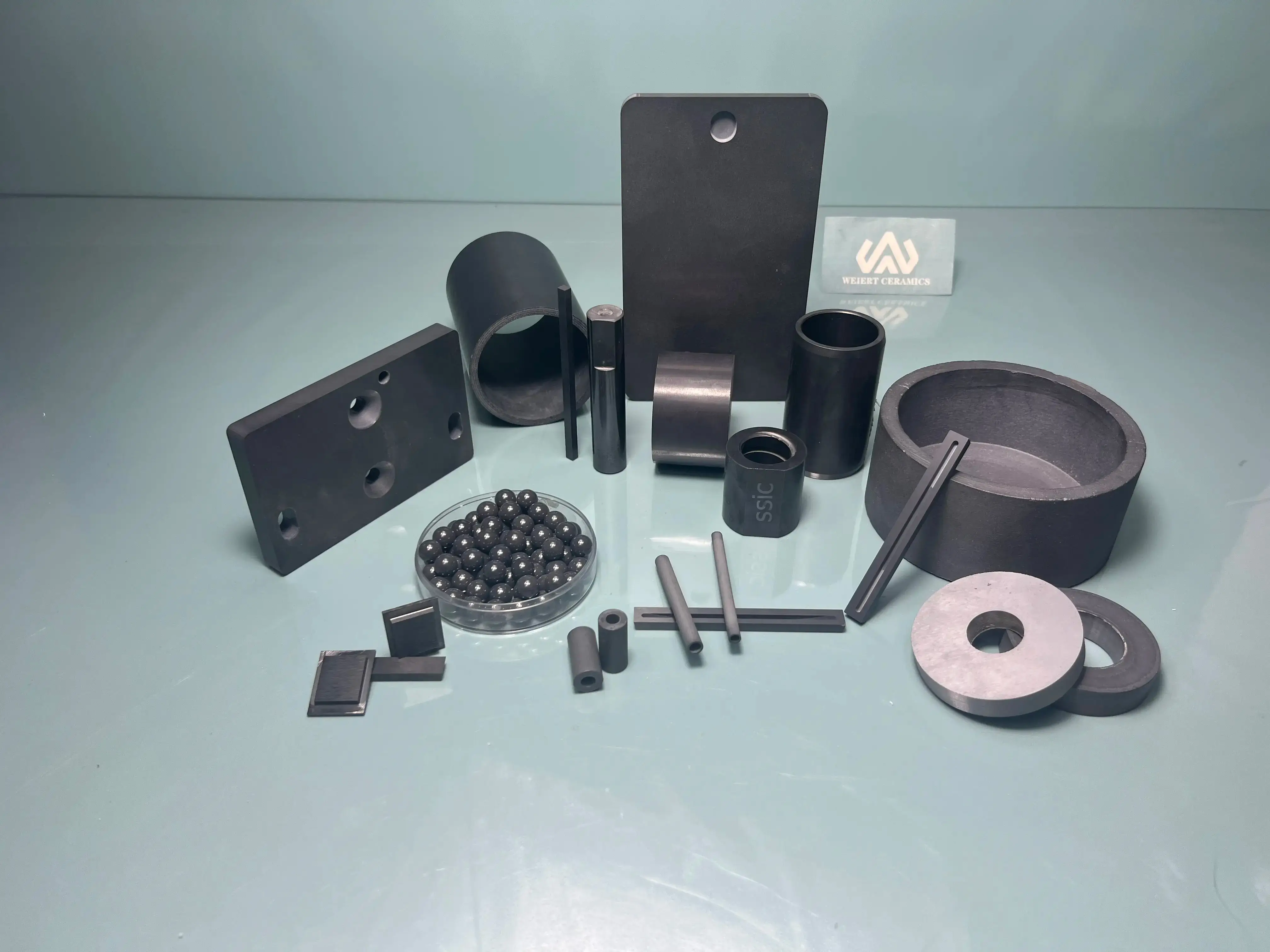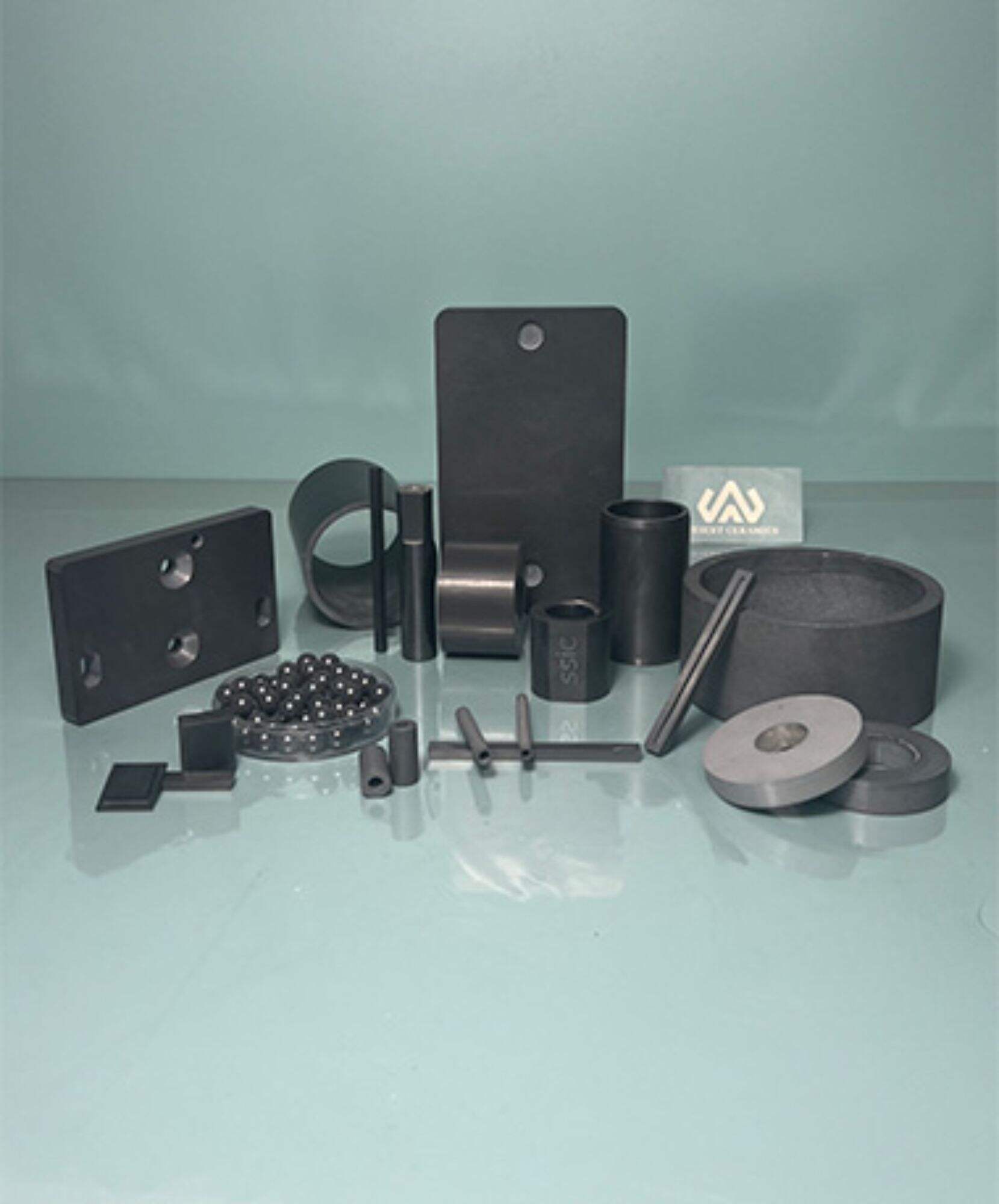Silicon carbide (SiC) and silicon nitride (Si3N4) each have distinct advantages that make them invaluable in various applications. Silicon carbide is extensively used in the electronics and energy sectors due to its high-temperature stability and semiconductor properties. In contrast, silicon nitride is prominent in the mechanical and automotive industries for its superior mechanical properties and wear resistance. Below is a detailed comparison of their performance characteristics and application industries:
Performance Characteristics:
-
High-Temperature Resistance:
- Can withstand temperatures up to about 1600°C.
- Maximum operating temperature ranges from 1400°C to 1800°C.
-
Hardness:
- Mohs hardness of 9.2-9.5.
- Mohs hardness of 9.5.
-
Wear Resistance:
- Both SiC and Si3N4 exhibit excellent wear resistance due to their high hardness.
-
Oxidation Resistance:
- Both materials have good oxidation resistance at high temperatures.
-
Thermal Conductivity:
- Thermal conductivity ranges from 120-270 W/m·K.
- Thermal conductivity is about 20-30 W/m·K.
-
Electrical Properties:
- A wide bandgap semiconductor, ideal for high-power and high-frequency electronic devices.
- Generally used as an insulator and for electronic packaging.
-
Impact Resistance:
- Exhibits good thermal shock resistance and mechanical impact resistance.
Application Industries:
-
Electronics and Semiconductors:
- Used in high-power, high-frequency, and high-temperature electronic devices such as diodes, MOSFETs, and IGBTs.
- Used in insulators, substrates, and electronic packaging materials.
-
Mechanical and Metallurgy:
- Employed in manufacturing high-temperature and corrosion-resistant mechanical parts like pumps, valves, bearings, and nozzles.
- Utilized for high-strength, wear-resistant mechanical components such as bearings, seals, and cutting tools.
-
Aerospace:
- Used in high-temperature structural materials and heat exchangers.
- Applied in the manufacture of engine components and high-temperature structural parts.
-
Energy:
- Used in structural materials and heat exchangers in nuclear reactors.
-
Chemical Industry:
- Applied in high-temperature furnace tubes, kiln furniture, and chemical reactor linings.
-
Medical Devices:
- Used in the manufacture of biocompatible artificial joints and dental implants.
Inquiry
Contact Us
No Minimum Order Quantity Requirements.

 EN
EN
 AR
AR
 HR
HR
 CS
CS
 DA
DA
 NL
NL
 FI
FI
 FR
FR
 DE
DE
 EL
EL
 HI
HI
 IT
IT
 JA
JA
 KO
KO
 NO
NO
 PL
PL
 PT
PT
 RO
RO
 RU
RU
 ES
ES
 SV
SV
 CA
CA
 TL
TL
 IW
IW
 ID
ID
 LV
LV
 LT
LT
 SR
SR
 SK
SK
 SL
SL
 UK
UK
 VI
VI
 TH
TH
 TR
TR
 FA
FA
 AF
AF
 MS
MS
 GA
GA

